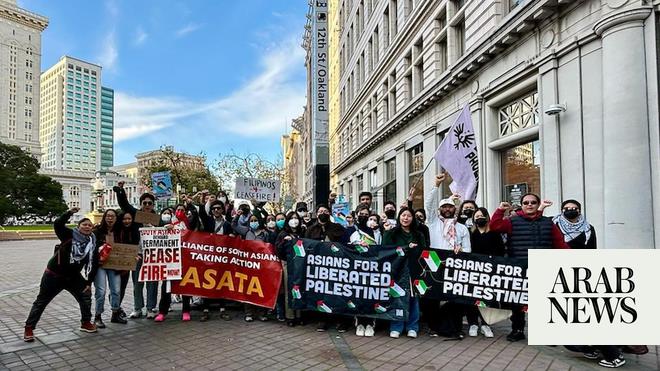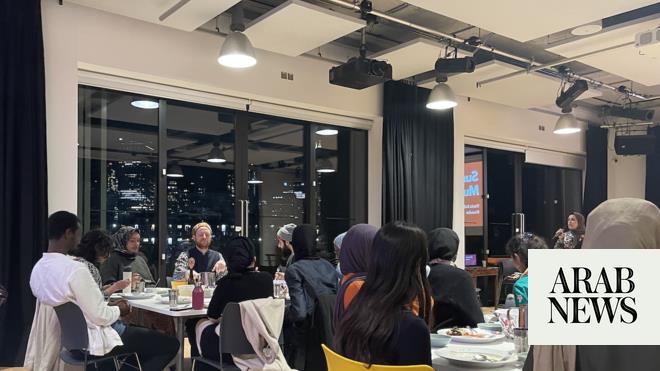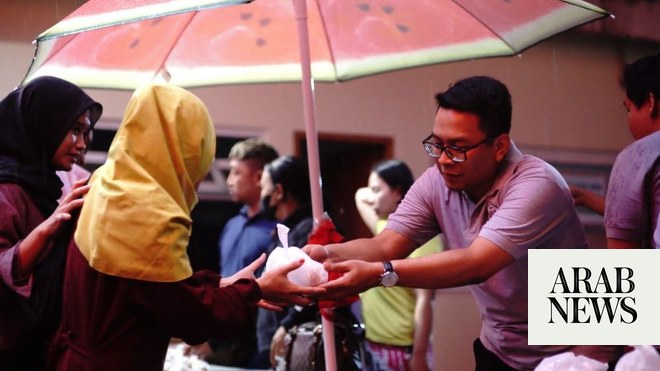
Muslims constitute roughly 5 percent of the predominantly Catholic population of the Philippines
Interfaith events during Ramadan are frequently organized by Muslims for non-Muslims and vice versa
MANILA: Throughout Ramadan, representatives of the Roman Catholic Church and other religious groups in the Philippines are pooling their resources to support the Muslim community in their fast and observance of the holy month.
Muslims constitute roughly 5 percent of the nearly 110 million, predominantly Catholic population of the Southeast Asian nation.
The minority communities live mostly on the island of Mindanao and the Sulu archipelago in the country’s south, as well as in the central-western province of Palawan, and the capital, Manila.
As Ramadan began last week, interfaith events, especially iftars to break fasts, have been frequently organized by Muslims for non-Muslims and vice versa.
One such meeting was held in Manila on Thursday evening by Uniharmony Partners, a coalition of churches and faith organizations. Muslims, Christians, Buddhists and Hindus celebrated the special time together.
“There are a lot of programs and activities ... for people of different faiths just to come together appreciate one another and enjoy each other’s culture,” Dr. Pablito Baybado, Uniharmony coordinator and theology professor at the University of Santo Tomas, told Arab News.
The programs include mutual support that Muslims extend to Christians and other groups during Christmas and other major holidays, and that is reciprocated when the Islamic fasting month arrives.
“During Ramadan, you have the Catholic Church through the Quiapo Church, and then the Church of Jesus Christ of Latter-day Saints, pulling together resources so that every Sunday we go to some communities or Muslim communities in Metro Manila like Culiat, Taguig and Quiapo and distribute food packs,” Baybado said.
“During this time of Ramadan, we are doing this because it’s a way of showing respect to one another.”
For Alvaro Centuria, a pastor of the United Church of Christ in the Philippines, Ramadan, besides inspiring a sense of unity, also has a spiritual dimension.
“It is it is very important because it reminds us, Christians, to also do fasting too ... It’s scientifically as well as religiously necessary,” he said.
“The essence of a meeting like this is that we are able to show that religions can unite for good, religious people can unite and can be in fellowship with one another.”
For Kerem Sadik, a Muslim member of Uniharmony, inter-faith meetings and activities, especially during Ramadan, which is not only the month of fasting but also charity, are a chance to foster a more tolerant and inclusive future generation.
“We try to nurture new generations from the start, without giving them any chance to grow stereotypes from the beginning rather than breaking them later,” he told Arab News, hoping that the examples set would foster mutual understanding and support.
“Now that we are in Ramadan, non-Muslim friends are also helping us in raising donations and they are getting out from their own community to reach our Muslim friends at this time of the year,” Sadik said. “This is what we did by helping the church community during Christmas celebrations.”












